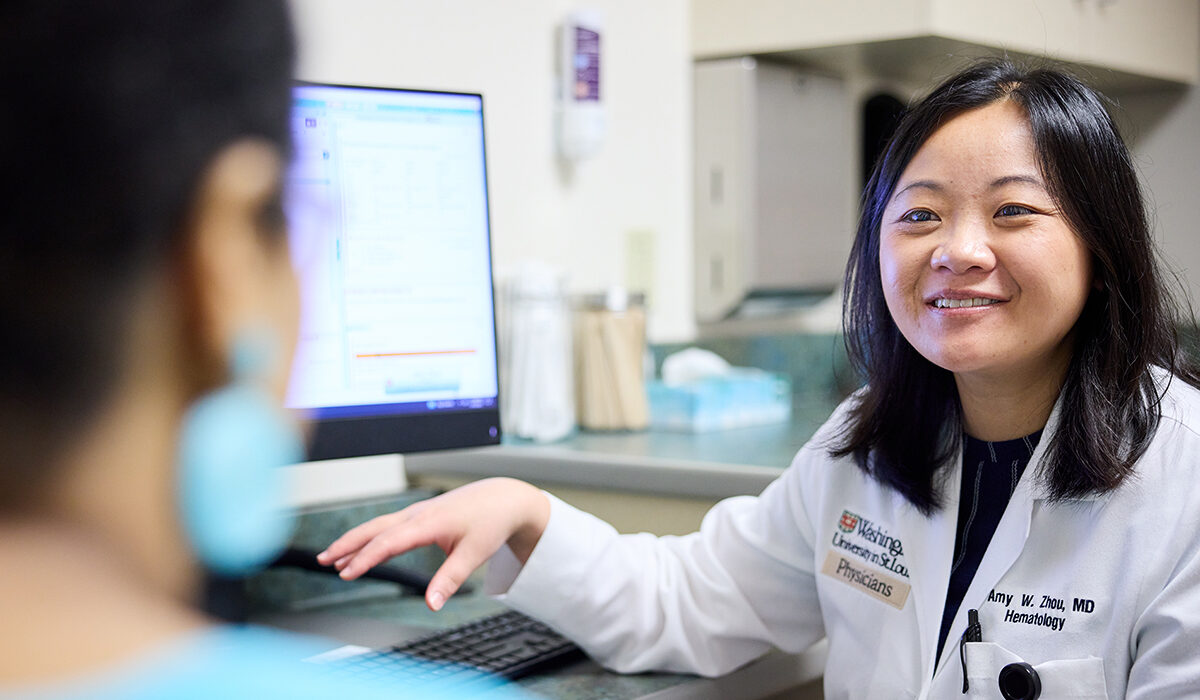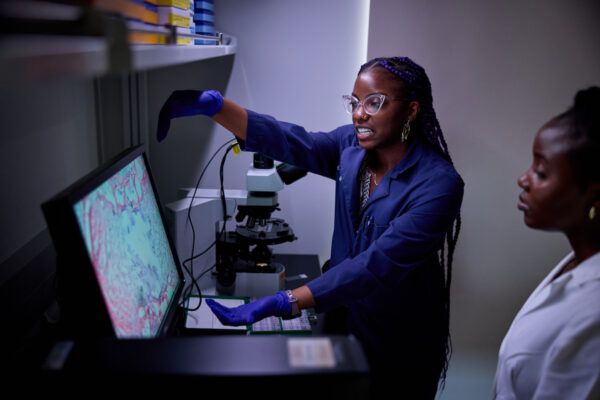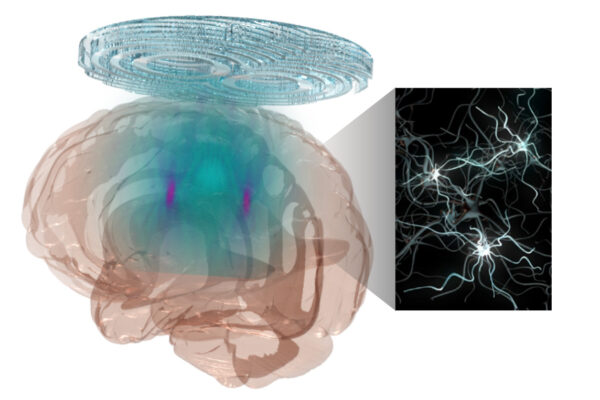Growing up in Detroit as the daughter of two engineers, Amy Zhou was good at math and programming and wondered if engineering also might be the right career for her. But on “Take your Daughter to Work Day,” Zhou had an important realization.
She remembers touring the automotive supply company where her father designed car steering systems. As she walked the factory floor, Zhou found the work a bit secluded, so she began thinking about careers that might offer more opportunities to interact with people. Later, a high school anatomy class piqued her interest in medicine.
“I’ve always really enjoyed meeting and talking with people,” said Zhou, MD, now an associate professor of hematology at Washington University School of Medicine in St. Louis. “As a clinician, I feel like my job is never boring, because I get to interact with so many different people every day and develop long-term relationships with my patients.”
Zhou’s specialty is blood cancers, particularly myeloproliferative neoplasms (MPNs), a set of conditions in which the body produces too many blood cells — sometimes red blood cells, other times white blood cells, sometimes platelets, or a combination. The conditions cause a wide range of symptoms, including headaches, fatigue, itching, pain and weight loss in addition to affecting normal blood production and increasing the risk of blood clots. In some cases, MPNs can progress to more aggressive and life-threatening blood cancers.
As a hematologist, Zhou — who treats patients at Siteman Cancer Center, based at Barnes-Jewish Hospital and the School of Medicine — is involved in clinical trials aiming to find better therapies for patients with such conditions.
“There’s a big need for better therapies, especially for patients with a type of MPN called myelofibrosis,” Zhou said. “Of the MPNs, myelofibrosis has the highest risk of leading to acute leukemia. The prognosis isn’t great, and treatment options are very limited. Recently we’re seeing more therapies that have been approved and more in the pipeline, and it’s important to me to be a part of improving treatment for these patients.”
MPNs are the primary focus of Zhou’s clinical research, but she regularly sees a variety of patients with hematologic disorders, from iron deficiencies to blood cancers.
Read a Q&A to learn more about Zhou and her work on the School of Medicine website.



